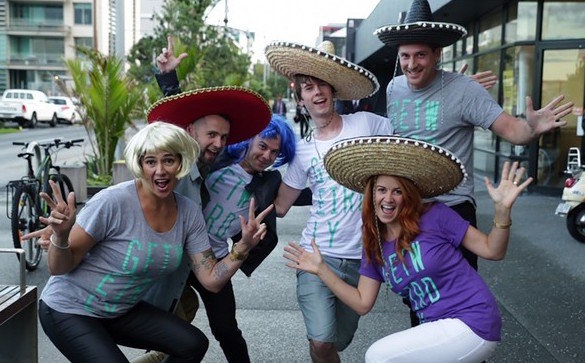
So you’ve had a great idea for a product/service/widget/thing. No one else is doing it and no one else could do it as well as you could. You’ve put all your money into the development of that thing, getting loans from aunts, uncles, ex-teachers and ex-lovers. And now, finally, you’ve got some people with real money to invest some of that real money into your increasingly real company.
So, now you’ve got capital and the expectations that go with it, you and your two university buddies can’t do it alone. You’re going to need to hire some real people – people you don’t know with skills you don’t have.
But hiring people is hard, and most people aren’t very good at it. You’re probably one of those people. And that makes sense because you didn’t do all that work conceiving of, and developing, your thing to become an HR expert.
Well, Weirdly are here to help with its free ebook Recruiting 101 for Startups: The ultimate guide for hiring your first 10 people, which includes chapters on writing job descriptions, which roles to hire first, questions to ask in a job interview and how to check references.
Weirdly CEO and co-founder Dale Clareburt says startups “need to make sure that they’re making the best use of the little time and money that they have”.
“Start-ups need to make sure they’re looking for the right people based on the stage of their business,” she says, “because the stage determines the type of people that they need, with the attributes they’re going to need. They need to realise that the type of person that they need is very different to the type of person that would be attracted to, or work out in, a large corporate.”
Clareburt says the biggest employment mistake startups make is recruiting for skills over culture fit. “A lot of startups are tech-based and there are some hard to find skills that they need, but getting someone with great skills that doesn’t fit in with their values and the way they do business can be a real mistake.”
As Weirdly’s co-founder, Clareburt has firsthand experience in staffing an early-stage company. She says being upfront about the company’s culture helped attract people who would not just fit in, but actively contribute to the business.
“We knew right from the beginning what made us great, and that’s being a little bit weird,” she says. “We were really honest about the type of people that we are and that we were looking for individuals so we made sure that we sat down and worked out who that was then we used our own culture fit quiz and put that at the beginning at our process.”




